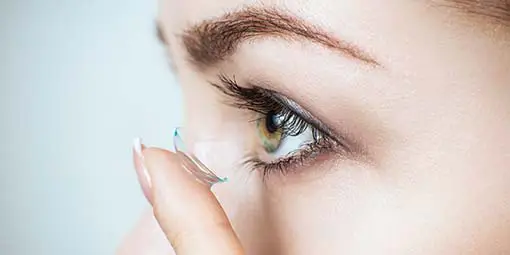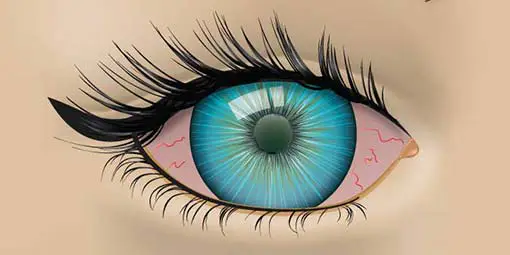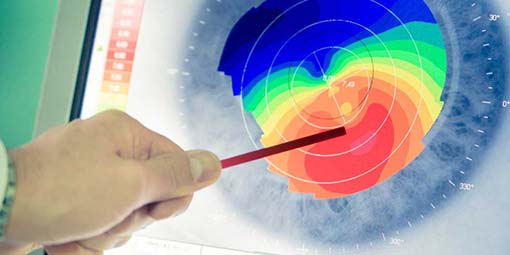Do you need a special eye exam or eye test if you wear, or wish to wear, contact lenses?
17-06-2023
Contact Lens Wearers Require A Contact Lens Eye Exam
Contact lenses have revolutionized the way people correct their vision, offering a convenient and often more aesthetically pleasing alternative to traditional eyeglasses. However, wearing contact lenses involves more than just choosing the right prescription. To ensure optimal comfort, eye health, and visual acuity, contact lens wearers require specialized eye exams and tests. In this article, we will explore why contact lens wearers need additional evaluations and scans to guarantee a proper contact lens fit, maintain eye health, and achieve the best possible visual acuity.Obtaining a contact lens prescription is the first step towards wearing contact lenses, but it is not the only consideration. Unlike glasses, contact lenses directly interact with the delicate surface of the eye - the cornea. Consequently, a contact lens fitting exam is necessary to determine the appropriate size, shape, and type of contact lens that suits an individual's unique ocular characteristics. During a contact lens fitting, an eye care professional will evaluate several factors, such as the curvature of the cornea, tear film quality, and the overall health of the eye. These measurements are crucial to ensure a proper fit and to prevent discomfort, dryness, and potential complications associated with ill-fitting lenses.
Contact lenses pose a potential risk to eye health if not used correctly or if underlying conditions are not detected. Specialized eye exams for contact lens wearers go beyond regular eye exams, providing a comprehensive evaluation of the eye's health. One significant concern is corneal health. Continuous contact lens wear may lead to corneal hypoxia, a condition caused by reduced oxygen supply to the cornea due to the presence of a contact lens. Eye care professionals will assess the cornea for signs of oxygen deprivation, such as neovascularization or edema. Another critical aspect of the eye health evaluation is checking for any signs of infection or inflammation. Contact lens wear can increase the risk of bacterial, fungal, or viral infections, such as keratitis. Regular screenings for these conditions are vital to identify and treat any potential issues early, minimizing the risk of complications.
One of the primary reasons individuals opt for contact lenses is to achieve improved visual acuity. However, ensuring optimal vision with contact lenses requires additional tests and evaluations. Eye care professionals will perform visual acuity tests with contact lenses in place to assess how well an individual sees at different distances. These tests will determine the appropriate prescription and address any specific visual needs, such as astigmatism or presbyopia. Moreover, specialized assessments may be conducted to evaluate visual performance while wearing contact lenses, such as contrast sensitivity and depth perception tests. These tests provide valuable insights into the lens wearer's overall visual experience and help optimize visual acuity.
Advancements in eye care technology have significantly enhanced the contact lens fitting process. Specialized scans and evaluations can now provide detailed measurements of the eye, leading to improved contact lens fit and comfort. One such technology is corneal topography, which generates a three-dimensional map of the cornea's surface. This information assists eye care professionals in determining the ideal contact lens design for a specific individual, optimizing fit and reducing the risk of complications. Another valuable tool is anterior segment optical coherence tomography (OCT). OCT scans provide detailed cross-sectional images of the cornea, allowing for a thorough assessment of the corneal thickness, tear film quality, and the integrity of the ocular structures. These scans aid in detecting any potential abnormalities and ensuring the long-term health of the eyes.
Once contact lenses are prescribed and fitted by an optometrist, it is essential to maintain regular monitoring and follow-up appointments with an eye care professional. Regular check-ups allow for ongoing evaluation of the contact lens fit, eye health, and visual acuity. Contact lens wearers may experience changes in their eye health or vision over time. Regular follow-ups enable eye care professionals to identify these changes early on and make any necessary adjustments to the contact lens prescription or fitting. This proactive approach helps prevent discomfort, vision deterioration, and potential complications associated with wearing contact lenses.
Specialized eye exams for contact lens wearers also play a crucial role in ensuring safety and educating individuals about proper contact lens care and hygiene. Improper contact lens handling, such as failing to clean lenses properly or wearing them for an extended period, can lead to eye infections, corneal ulcers, and other serious complications. During specialized eye exams, eye care professionals educate contact lens wearers on proper lens insertion and removal techniques, cleaning and disinfection procedures, and the importance of adhering to recommended wearing schedules. This education empowers individuals to make informed decisions about their eye health and minimizes the risk of contact lens-related problems.
Contact lens wearers require specialized eye exams and tests to ensure a proper contact lens fit, maintain eye health, and achieve optimal visual acuity. These evaluations go beyond obtaining a contact lens prescription and encompass a comprehensive assessment of the eye's health, including corneal condition, infection risk, and overall ocular well-being. Advanced technologies, such as corneal topography and OCT scans, provide valuable insights into the eye's anatomy and aid in optimizing contact lens fit and comfort. Regular monitoring and follow-up appointments allow for ongoing assessment and adjustment, ensuring long-term eye health and visual satisfaction. By prioritizing specialized eye exams, contact lens wearers can enjoy the benefits of clear vision while minimizing the risk of complications and maintaining the overall health of their eyes.
Schedule An AppointmentFYEyes Blog Posts

Reasons To Consider Scleral Contact Lenses
Scleral contact lenses offer numerous benefits, especially to those with unique needs.

Are Contact Lens And Eyeglass Prescriptions The Same?
Understand why contact lens prescription is not the same as one for glasses.

The Benefits Of Scleral Contact Lenses
cleral contact lenses redefine visual clarity and comfort for individuals with unique ocular needs.


Adult Eye Exams
Our advanced eye exams consist of 25+ modern tests and digital scans to assess eye health, function, and visual acuity.

Child Eye Exams
Give your child a clear future with an annual eye exam from our experienced Edmonton optometrists.

Senior Eye Exams
Maintain your vision through your golden years with gold standard eye care from the optometrists at our Edmonton eye clinic.

Contact Lens Eye Exams
Our eye exams for contact lens wearers include test and digital scans to assess eye health, function, visual acuity, and lens fit.

Diabetic Eye Exams
Managing diabetes requires regular eye exams to ensure that diabetes is not causing irreversible vision loss.

Dilated Eye Exams
Dilating the eyes enables our Edmonton optometrists to see more of the eye so that you many never see less.
Our Edmonton Eye Exams Are Comprised Of 4 Phases Of Evaluation

1. Eye Exam Pre-Testing
Corneal Thickness | Intraocular Pressures | Visual Field
Pre-testing is a detailed process that gathers all necessary information for the optometrist in advance of the optometrist-administered eye examination. This process involves completing a detailed patient history, as well as a series of standard tests. Pre-testing is an essential part of the comprehensive eye exam process, providing valuable information and visuals for both the optometrist and the patient.
More About Pre-Testing »
2. Advanced Diagnostic Testing
Retinal Photography, OCT, Topography
eye-deology Vision Care differentiates itself from other clinics by having the most advanced modern diagnostic specialty testing equipment. Specialty equipment, such as a wide-angle high-resolution retinal imager, Optical Coherence Tomography (OCT), Humphrey Visual Field Analyzer and corneal topographer, ensures that patients receive the best comprehensive eye care.
More About Advanced Testing »
3. Optometrist Examination
Health Assessment & Disease Diagnosis
eye-deology Vision Care Edmonton optometrists perform a multitude of tests and assessments to evaluate ocular health, eye coordination, and visual acuity. In addition, they also evaluate the results of the tests and scans performed during pre-testing. As part of patient education, our optometrists also take the time to show and explain results to patients.
More About Doctor Exam »
4. Eye Glass Consult
Prescription | Lens Selection | Digital Fitting
If you require corrective lenses to improve your vision, our licensed opticians will customize their fit to your unique attributes, needs, lifestyle, and budget. Our opticians are happy to provide you with information about the latest eyeglass frame and lens technologies available so you can make informed decisions and begin seeing and looking your best.
More About Eyewear Consult »